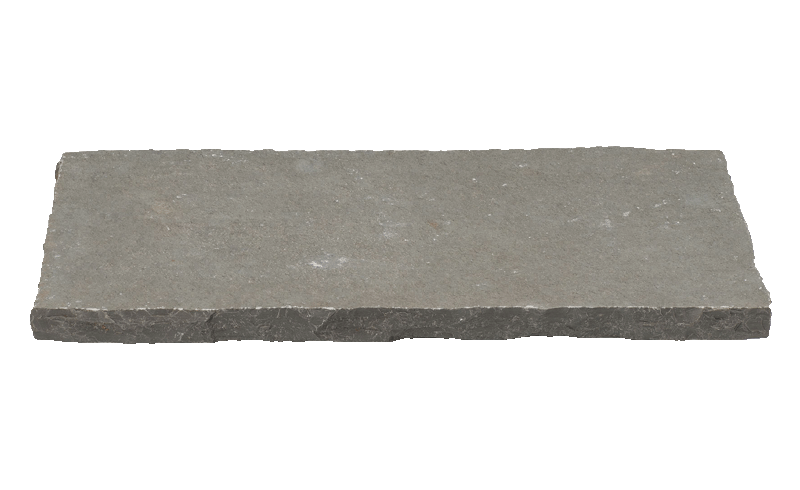
Designing exquisite environments with natural stone takes vision and design capabilities, but even more so requires good access to good materials that are going to hold up in the long run. Whether designing an exquisite kitchen with granite, designing an outside living space using limestone pavers, or developing chic bathrooms using marble accents, identifying the source for your stone is paramount. This guide will walk you through the often-complicated process of selecting and working with a reliable Slab Stone Supplier that will be able to fulfill your individual requirements with top-notch service and value.
Grasping the Significance of Quality Stone
Natural stone is a heavy investment in either residential or commercial construction. The grade of the material has a direct effect not just on the visual beauty but also on the durability and quality of the completed installation. High-quality stone slabs provide even coloration, correct density, few fissures, and strength that guarantees long-term satisfaction. Low-grade materials may be inexpensive at first but more frequently bring disappointment through early wear, unanticipated color shifts, or even structural collapse needing expensive replacement.
Types of Stone to Consider
Before looking for suppliers, get to know the most popular stone types and their properties. Granite provides incredible durability and resistance to heat, making it ideal for kitchen countertops and heavy-duty areas. Marble gives classic sophistication but demands additional maintenance and attention. Quartzite unites aesthetics with remarkable strength, while limestone and travertine introduce warm, earthy colors to interior and exterior use. Soapstone provides a unique look with inherent resistance to stains and heat.
Defining Your Specific Requirements
Begin your search by having a clear idea of what you require for your project. Think about the particular application, interior or exterior, the rough square footage needed, thickness requirements, edge treatments, and any special features such as cutouts for sinks or appliances. Record your color requirements and desired consistency of pattern. Having a clear idea of your requirements serves to limit possible suppliers and ensure you are comparing suitable options when seeking quotes and reviewing sample materials from various sources.
Starting Your Supplier Search
Identifying a good slab stone supplier starts with research through various avenues. Get referrals from architects, designers, and contractors who frequently work with stone. Go to showrooms and stone yards locally to view materials in person and assess the professionalism of the staff. Industry associations tend to have directories of good suppliers. Internet searches can broaden your choices, particularly if you’re seeking specialty stones or unusual colors not easily found locally.
Assessing Inventory Selection
A large inventory selection suggests a reputable slab stone supplier with good industry contacts. Conduct visits to prospective suppliers to inspect their showroom or stone yard. Check for diversity in types of stone, color, patterns, and finishes that could appeal to your present job and upcoming ones. Quality suppliers usually have options across price points and have a steady rotation of new materials. They need to have entire slabs that can be shown, not mere samples that could be different from the real material.
Evaluating Product Knowledge
Professional knowledge distinguishes excellent suppliers from average ones. Representatives must be able to show extensive knowledge regarding their products, such as the geological source of various stones, their performance properties, and proper uses. They must openly share maintenance needs and possible issues with certain materials. Informed personnel will pose detailed questions regarding your project to assist you in making appropriate choices instead of attempting to sell the most costly products without regard to appropriateness.
Verification of Credentials and Industry Reputation
Reputable suppliers have valid business credentials and may be members of trade organizations such as the Natural Stone Institute. Seek professional certifications and continuing education in fabrication and installation of stone. Online reviews and testimonials give clues to other customers’ experiences, but keep in mind to pay attention to overall trends rather than individual outliers. Suppliers ought to be able to furnish references from prior clients, ideally with similar projects in terms of scope and materials as yours.
Understanding Sourcing Practices
Good suppliers are open about their stone sourcing practices. They can inform you of the country and frequently the individual quarry from which their materials are sourced. They deal with established quarries and importers that follow proper extraction and processing techniques. There are suppliers that deal directly with quarries to guarantee consistent quality and ethical sourcing. This information helps you verify the authenticity of materials like “Italian marble” or “Brazilian granite” that command premium prices based on their origin.
Examining Material Quality Standards
Quality control distinguishes superior suppliers from others. Inquire about their inspection procedures for incoming stone slabs. Good suppliers thoroughly inspect each slab for structural soundness, color uniformity, and finish quality before accepting it into stock. They know and adhere to industry standards for material grading. They should be able to explain specific quality criteria for various types of stone and demonstrate how to identify quality characteristics and potential issues in the slabs you are looking at.
Assessing Fabrication Ability
Many suppliers also offer fabrication services, which can streamline your project. If fabrication is included, inspect their workshop facilities and equipment. Modern CNC machinery, digital templating technology, and proper dust collection systems indicate investment in quality processes. Skilled craftspeople working in well-organized, clean environments typically produce superior results. Ask about their quality control procedures during fabrication and how they handle complex features like mitred edges, book matching, or integrated sinks.
Inquiring About Complementary Products
Stone projects that are complete sometimes demand more than slabs. A full-service supplier may also serve as a Wall Cap Distributor, offering the finishing pieces necessary for landscape walls, pool surroundings, and other vertical installations. Having coordinating materials such as wall caps, treads, thresholds, and trim pieces readily available makes it easy to source and maintain visual continuity in your project. These auxiliary products must be of the same quality as the main slabs in order to deliver consistent performance and appearance in the long run.
Conclusion
The search for a good slab stone supplier involves patience and proper scrutiny, but it is well worth the effort as it delivers fantastic returns on your project. A good supplier is a great ally who helps your stone installation a lot towards its success and long-term life. Through careful research of alternatives, touring facilities, sampling materials firsthand, and evaluating the entire package of products, services, and experience, you can make a wise choice of a supplier who will assist in bringing your vision to life as a stunning reality that lasts for generations.
